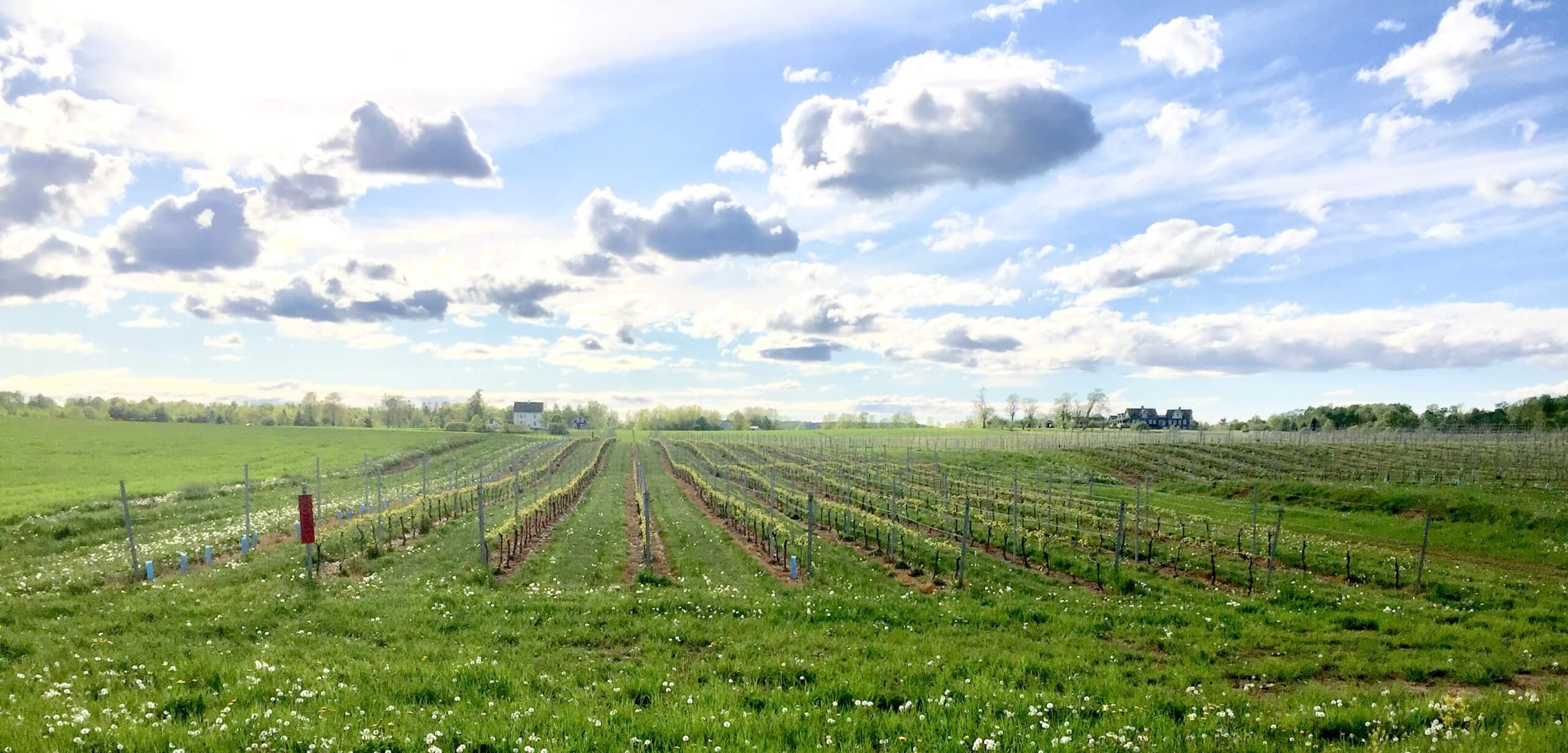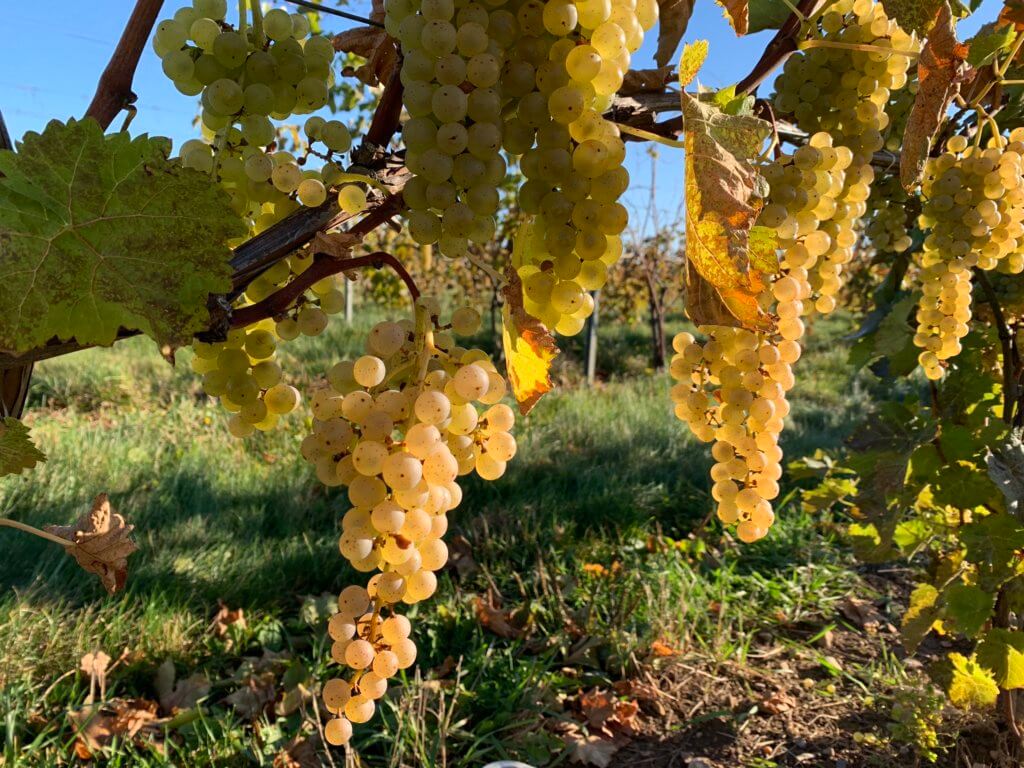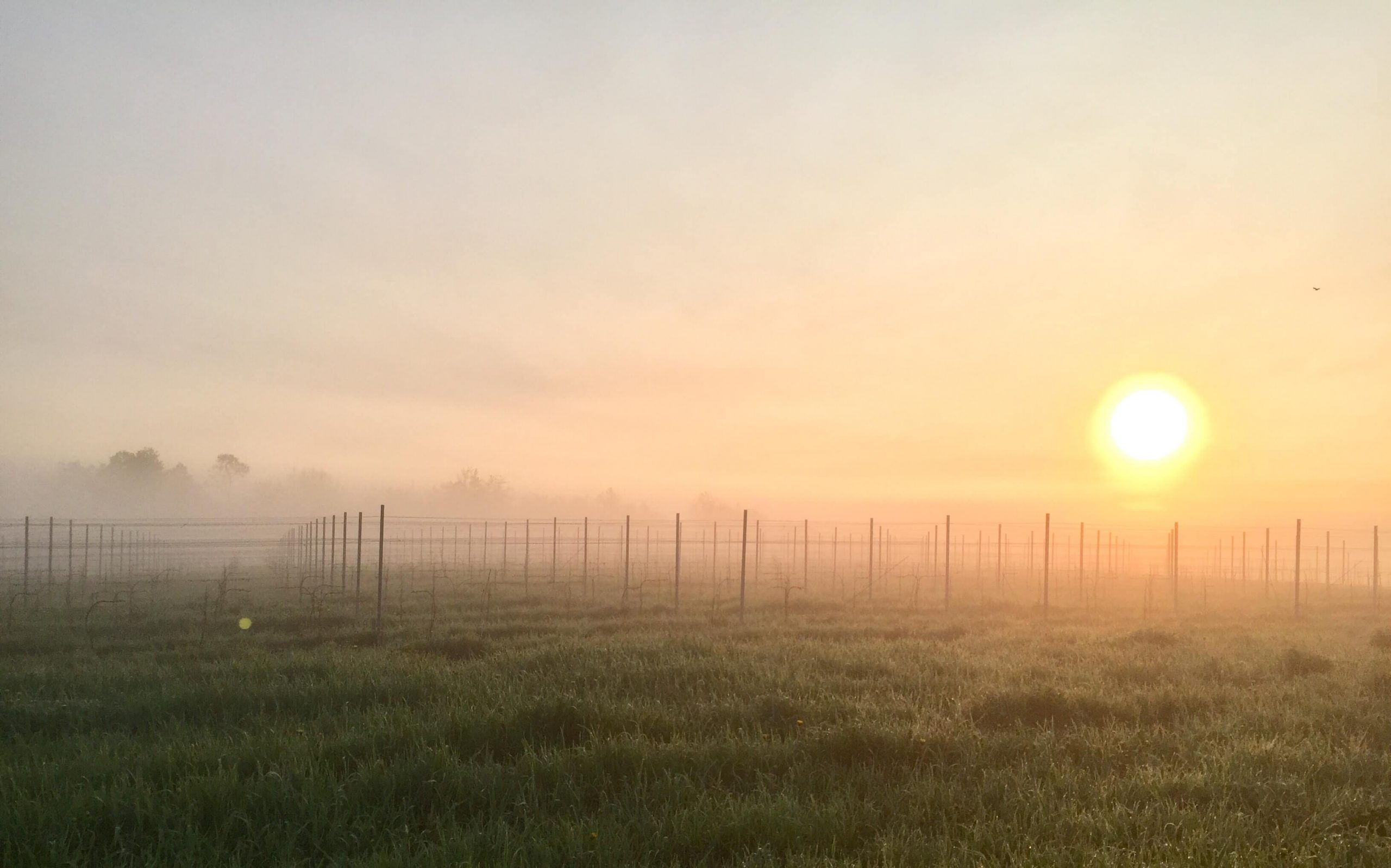Vine survival and the June 4 2018 freeze
The unprecedented freeze on June 4, 2018 caused widespread damage to the grape crop in Maritime vineyards. The east end of the Annapolis Valley was especially cold, -7 in places around Johnston Vineyards. What seemed to go unappreciated by some was the long term damage to vine trunks and root systems that occurred in these colder regions. In addition to the introduction of Crown Gall into the trunks and root stock graft site, there appears to have been irreversible damage to roots likely aggravated by the youthfulness of the vines (1-4 years old) This damage was not evident in the hardiest vines including Marquette and Petite Pearl and to a lesser extent Petite Milo (all 3-4 years old). The Vidal, Muscat, Seyval, Geisenhiem 318 and vinifera (Chardonnay, Pinot Noir and Reisling) have all struggled since the freeze with plants dying each year since. The Vidal, Muscat and Seyval responded to foliar applications of nutrients including iron, zinc, calcium etc. Urea was applied to the Muscat to enhance nitrogen utilization with good results. Recovery was not so evident with the other varieties. Cluster thinning had little noticeable benefit on recovery when done at around veraison. Earlier cluster thinning should be more helpful while late thinning seems helpful only to enhance ripening,. Another factor that contributed to a tardy recovery was the soil. Johnston Vineyards was established on land that was not cultivated for years and was planted in apple orchard or hay. There are swaths of diminished vine vigour cutting across several varieties suggesting an underlying soil issue. In some parts there is hard clay near the surface. These conditions are tolerated by the hardiest vines like Marquette and Petite Pearl, but not as well by the sensitive hybrids and viniferas. Introduction of organic matter and regular cultivating of the land before planting vines will be helpful. It will take several years of under vine tilling and deep aisle harrowing and cover crop planting to achieve the best soil. Microorganisms need to be encouraged in part by use of Biomax or similar treatments. The main lessons learned from the 2018 late freeze is that vinifera and sensitive hybrids require good soil and protection from frost prone regions. The adage that the best grapes thrive on neglect does not apply to Nova Scotia vineyards,

New plantings and drought of summer 2020
Bareroot vinifera and hybrid vines were slow to grow in 2020 due to the drought. The dry conditions were attenuated somewhat in parts of the valley by localized thunderstorms, but not in Falmouth. There was a high mortality rate among the newly planted Reisling and L’Acadie. The mortality rate for the L’Acadie was aggravated by fact that the 15 inch grow tubes were left on all winter. The damage this caused was not due as much to failure to harden off the trunks but rather heaving of the frozen soil during periods of thawing. The tubes served as mini hothouses.
New plantings with a hydraulic auger
The auger was designed and built under the direction of Klaus Sudbrack, owner of Shemogue Custom and Trellis, New Brunswick. It was a huge time saver and provided consistent large holes in hard clay soil that allowed the root system to get established in the loose soil that lined the hole. It was used for bareroot and potted plants.
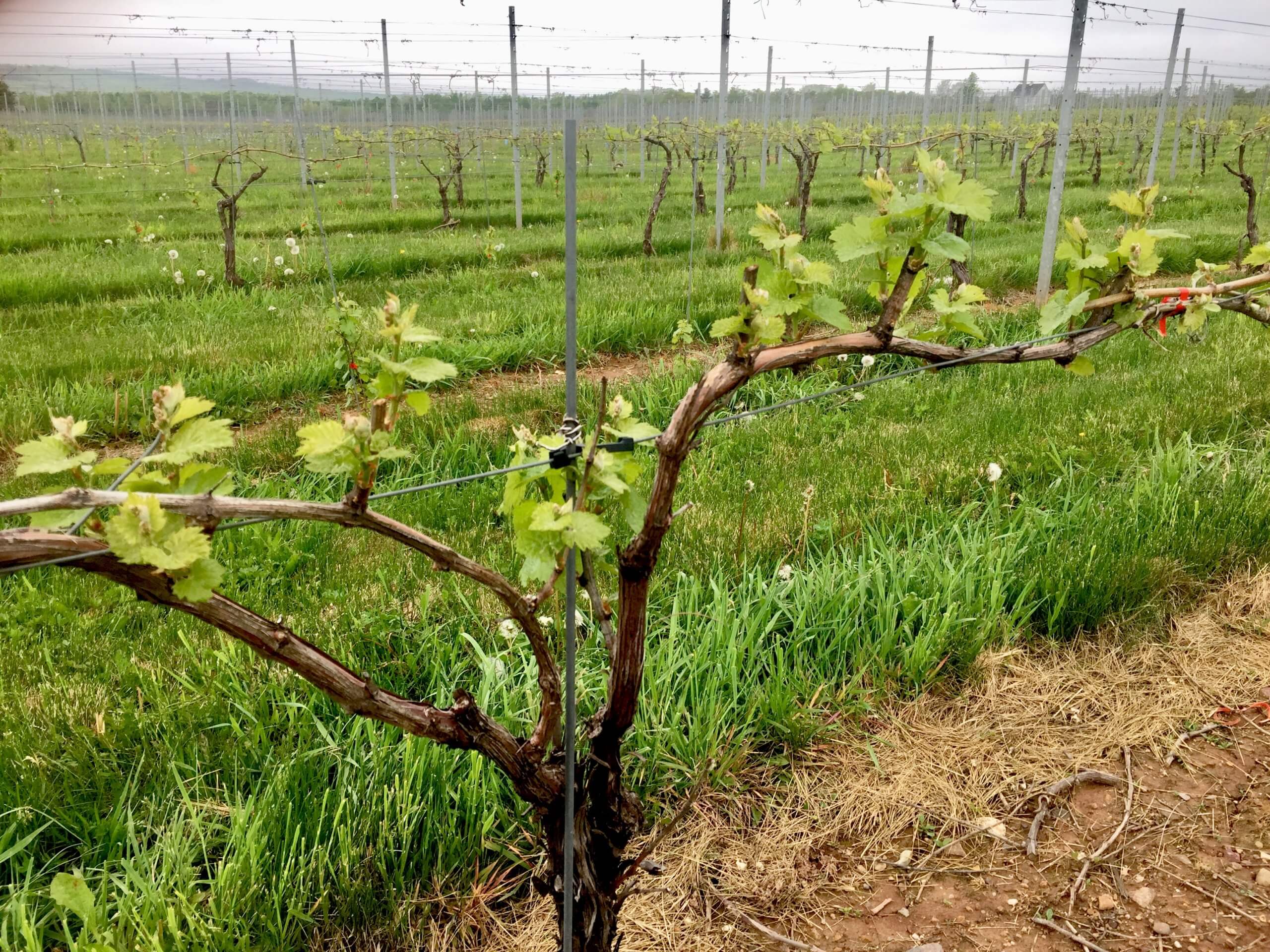
Cluster thinning for ripening vs vine health
If it looks like the growing season is going to be accompanied by harsh weather conditions it would seem beneficial to thin out clusters of heavy cropping hybrid varieties such as Syval, G318 and Petite Milo early on in their development. This may help plants if harsh conditions continue. The other hybrids that grow in Johnston Vineyards such as Marquette, Muscat, Petite Pearl, L’Acadie, Vidal and Cabernet Foch do not seem to benefit from cluster thinning either in terms of plant health or ripeness. The vinifera will benefit from cluster thinning to enhance vine survival and grape ripeness. Growing conditions were near ideal in 2021 and only the Petite Milo was thinned.
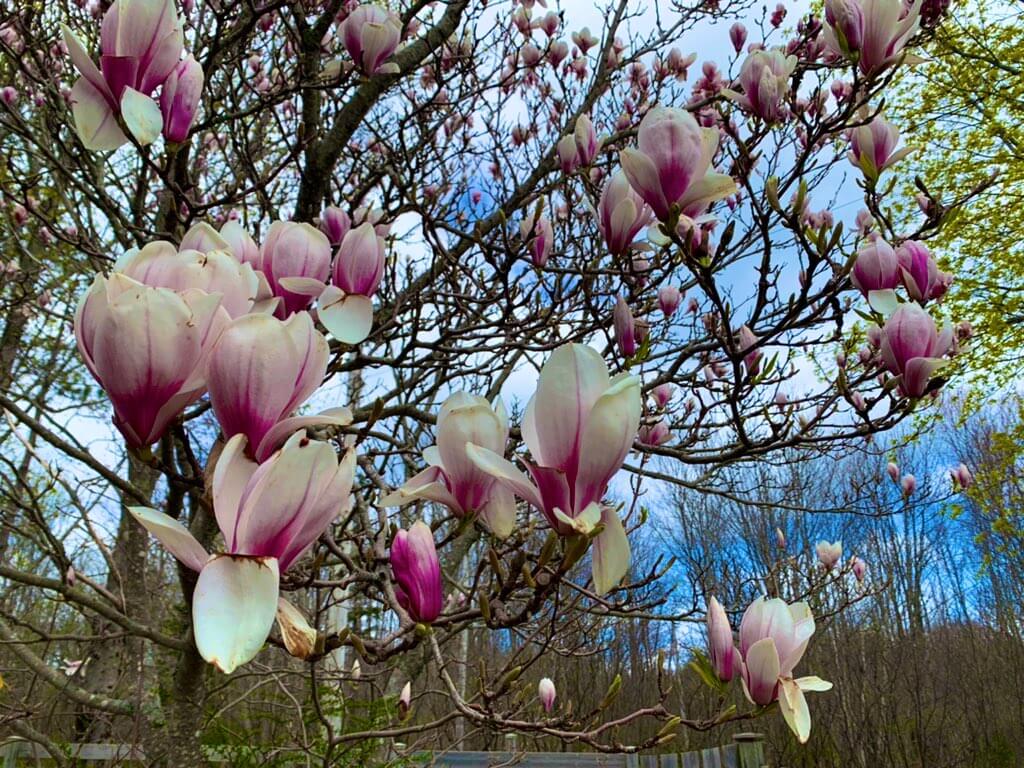
Grape vines appreciate good soil, not neglect in Nova Scotia
Healthy plants that have not been stressed provide the best grapes for wine making in Nova Scotia. Allowing plants to become stressed due to nutritional deficiencies will put the plant at risk for a short lifespan, especially when exposed to bouts of severe Nova Scotia weather. Well ripened, healthy berries should be the goal of growers, not stressed small berries.


